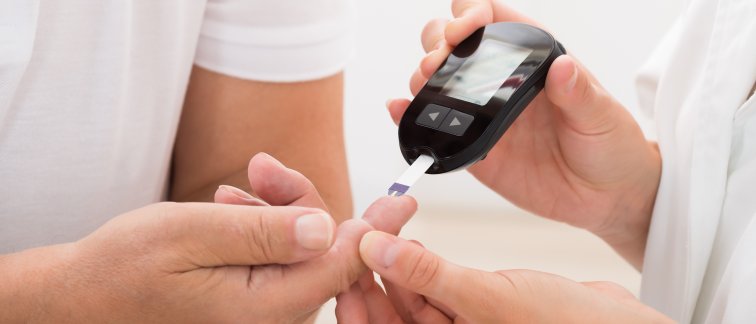A simple dietary supplement instead of intensive medical treatment to slow down or even prevent type 1 diabetes—that is the goal of new research lead by Max Nieuwdorp, which will begin on November 1.
The Role of the Gut
In this study, internist prof. dr. Max Nieuwdorp and immunologist dr. Elena Rampanelli (Amsterdam UMC) are focusing on the gut. Gut bacteria influence the immune system through substances produced when nutrients from our diet are processed. Certain bacterial compositions and the signaling molecules they produce have a beneficial effect on the immune system and on autoimmune processes, including those involved in type 1 diabetes.
Why 6-Bromotryptophan?
One particular substance caught the researchers’ attention: 6-bromotryptophan (6-BT). This is formed when gut bacteria process the amino acid tryptophan from our diet. Tryptophan is a building block for proteins and is found in foods such as dairy products, bananas, and eggs. Previous research has shown that levels of 6-BT in blood are associated with better beta cell function and a more favorable immune response. People with type 1 diabetes generally have lower levels of 6-BT in their blood compared to those without the disease. Moreover, patients with higher 6-BT levels tend to maintain their beta cell function better in the years following diagnosis. Studies in mice have shown that treatment with 6-BT led to better preservation of beta cell function, fewer inflammatory responses in the pancreas, and higher natural insulin production.
The Clinical Study
6-BT is a promising substance, but does treatment with 6-BT actually have the desired effect in people who have just been diagnosed with type 1 diabetes? To determine this, the 34 participants in this clinical study—people from all over the Netherlands who have been diagnosed with type 1 diabetes within the past 6 months—will receive capsules containing 6-BT or a placebo for 12 months. The placebo contains no active ingredient, allowing researchers to determine whether the effects observed are truly due to taking 6-BT. Throughout the year, and for 6 months after the end of treatment, various measurements will be taken to assess the effect of 6-BT on beta cell function and natural insulin production, immune response, and blood sugar regulation. In addition, the safety of the supplement will be evaluated.
Expected Results
Results are expected in 2029. By then, the researchers will have gained more insight into the various factors involved in the development of type 1 diabetes and will have worked towards developing an accessible treatment. And, if 6-BT proves effective, they will have a simple dietary supplement—and thus an accessible treatment—at hand to preserve beta cell function as much as possible and to delay the onset of type 1 diabetes.
In previous research through Stichting Don, Max Nieuwdorp also investigated the role of gut bacteria in type 1 diabetes and the ‘training’ of the immune system via fecal transplantation, or stool transplantation into the small intestine.
Photo: Adobe stock.

